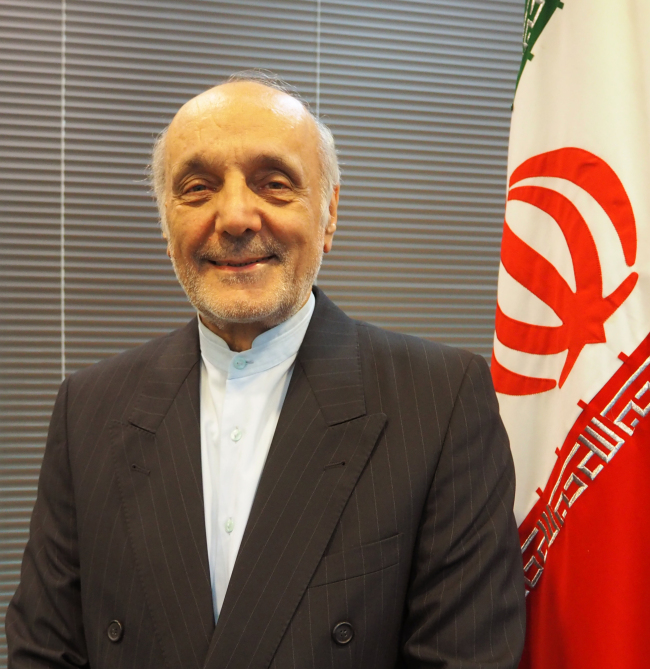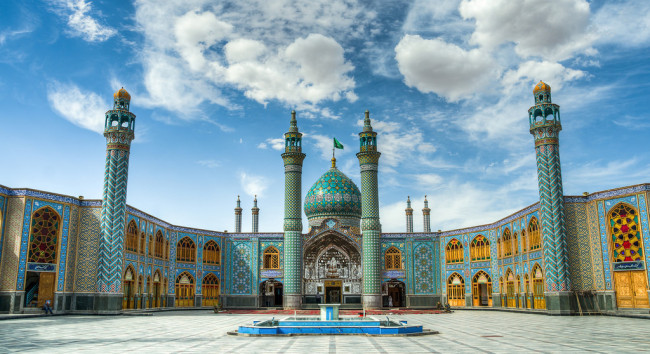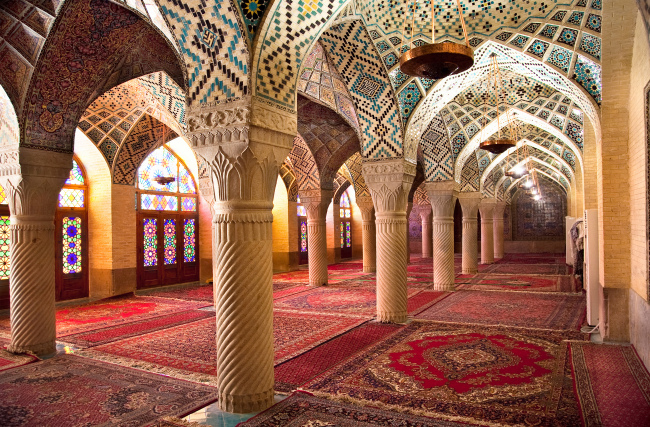‘Moderate Islam holds key to modernization’
“I tell you that as a Muslim, regardless of your vocation, one of your duties is to practice Islam in a faithful way and encourage others to follow. This is an individual duty.”
By Joel LeePublished : Nov. 6, 2017 - 18:21
Iranian Ambassador to Korea Hassan Taherian has faithfully practiced Islam, believing that a life of piety, honesty and integrity is any Muslim’s starting point.
At a time when different interpretations of Islam -- from purist to reformist, and from Shiite to Sunni -- are engrossing Iranian domestic politics and the larger Middle East, the envoy conveyed his personal view that a true Muslim ought to live scrupulously in line with Islamic teachings and norms, and not enforce his or her belief on others.
“I tell you that religion is an important aspect of humanity, particularly in the Middle East societies,” he told The Korea Herald at the embassy in Seoul. “Religion plays a crucial role in shaping the Iranian society’s morality and encouraging people to live good lives.”
The Middle East powerhouse is an Islamic republic, where more than 90 percent of people associate themselves with the Shiite branch, the official religion of the state. Five to 10 percent of Iranians belong to the Sunni or Sufi denominations, and there are small minorities of Jews, Christians, Zoroastrians and others. Iran became an Islamic republic after the Pahlavi dynasty was overthrown in the 1979 Islamic Revolution.
At a time when different interpretations of Islam -- from purist to reformist, and from Shiite to Sunni -- are engrossing Iranian domestic politics and the larger Middle East, the envoy conveyed his personal view that a true Muslim ought to live scrupulously in line with Islamic teachings and norms, and not enforce his or her belief on others.
“I tell you that religion is an important aspect of humanity, particularly in the Middle East societies,” he told The Korea Herald at the embassy in Seoul. “Religion plays a crucial role in shaping the Iranian society’s morality and encouraging people to live good lives.”
The Middle East powerhouse is an Islamic republic, where more than 90 percent of people associate themselves with the Shiite branch, the official religion of the state. Five to 10 percent of Iranians belong to the Sunni or Sufi denominations, and there are small minorities of Jews, Christians, Zoroastrians and others. Iran became an Islamic republic after the Pahlavi dynasty was overthrown in the 1979 Islamic Revolution.

“I tell you that as a Muslim, regardless of your vocation, one of your duties is to practice Islam in a faithful way and encourage others to follow. This is an individual duty,” he said.
“Government officials are also encouraged to promote Islamic teaching and views. But they do not in any way try to enforce their beliefs on others. By being a good example of a Muslim, living a pious, honest and socially oriented life, others will think Islam is a force for good.”
Taherian agreed with the notion that moderate Islam is more compatible with globalization and integration with different cultures. He explained there are various stances on the Islamic ideological spectrum, with “purists” or “extremists” of the Salafi movement -- an ultraconservative branch of Sunni Islam -- on one hand, and “reformists” or “moderates” -- dedicated to engaging the world and developing their societies with modernity -- on the other hand.
The fundamentalists aim to remake the world mirroring the teachings of Prophet Muhammad who lived 1,400 years ago, he explicated, while reformists try to see through Muhammad’s message and distill his essence in a rapidly progressing world.
Both views exist in Iran on all levels of the society, government and institutions, he added, saying international cooperation would be easier for Muslims with a “flexible” attitude.

Iran’s regional rival Saudi Arabia, a Sunni powerhouse, has also faced the exigencies of religious moderation. Saudi Crown Prince Mohammed bin Salman recently promised a return to “a more moderate Islam,” in a bid to refashion the kingdom as an attractive, stable destination for foreign business and investment. To pave the way for its “Vision 2030” strategic development plan, aimed at diversifying the petroleum-driven national economy for the post-oil era, the prince lifted several restrictions, including the one barring women from driving, set to fully go into effect next year.
“Saudi was not like this before 1979. Saudi Arabia and the entire region went through a revival after 1979,” he said at the Riyadh’s Future Investment Initiative conference in late October, referring to the year the country strengthened its ties with Wahhabi ultraconservative establishments to compete for regional power against conservatizing Iran in the Islamic Revolution.
Taherian said the Iranian constitution as well as various societal rules and regulations are based on Sharia, and although not all laws are based on Islamic law, they should not run counter to it. Analysts have said Iran’s constitution -- hammered out in the wake of the 1979 revolution -- is one of the sources of perennial conflicts between ultraconservatives and reformists, as it contains conflicting principles of democracy and theocracy.
Iran’s Majlis parliament has 290 representatives and their legislations are checked by the Guardian Council, comprising 12 Islamic leaders, or imams.

On the question of cultural collaboration with Korea, the diplomat argued that both societies should focus on their commonalities rather than differences. He said Korean TV dramas are popular in Iran, and Iranian films are critically acclaimed worldwide and increasingly appreciated by cinema aficionados here.
“Koreans in general don’t know much about Islam and its cultural subtleties and differences,” the ambassador said, adding that Korean media outlets tend to import and air the perspectives of Western channels, dominated by news of violence and terrorism.
“So people understand Islam through the angle of Western cultures, not Korea’s own eyes. It takes time to understand the Middle East and its cultures and religion through your own perspective. It’s important for a journalist to have a firsthand observation and understanding of Islam.”
By Joel Lee (joel@heraldcorp.com)







![[KH Explains] How should Korea adjust its trade defenses against Chinese EVs?](http://res.heraldm.com/phpwas/restmb_idxmake.php?idx=644&simg=/content/image/2024/04/15/20240415050562_0.jpg&u=20240415144419)










![[Today’s K-pop] Stray Kids to return soon: report](http://res.heraldm.com/phpwas/restmb_idxmake.php?idx=642&simg=/content/image/2024/04/16/20240416050713_0.jpg&u=)